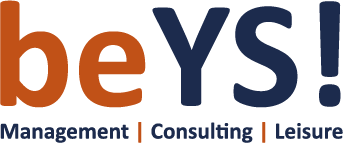Over ten percent of Americans lack medical health insurance.
They can usually get care in an emergency room—but this treatment comes with a potentially high bill if they experience a medical emergency. Unpredictable expenses that are medical like ER visits, can very quickly blow a family group spending plan. Likewise, without insurance routine, medical costs, like prescription drugs, may contend with necessities like rent and meals. The advantages of medical insurance, then, are both medical—such as better access to care—and economic. Certainly, research discovers that medical health insurance coverage decreases bankruptcy prices, decreases the sheer number of bills delivered to range, raises fico scores, and safeguards families from catastrophic expenses that are medical thought as significantly more than 30% of income.
While payday advances are thought “loans of last option,” almost 70% of people that utilize them report doing this for ordinary as opposed to unforeseen costs and users take out the average of eight loans each year.
Strong proof supports the premise that Medicaid can enhance household funds. We chose to learn the end result of medical health insurance using one specific economic result: payday borrowing. Payday advances are short-term, high-interest loans which are very popular among low-income People in america. The typical cash advance supplies the debtor $400, that she or he must repay within a fortnight. The cost for that loan is normally $60 or more, which amounts to a yearly rate of interest greatly greater than what the customer could be charged by a charge card business or various other more lender that is traditional. While pay day loans are believed “loans of final resort,” almost 70% of people that make use of them report performing this for ordinary in place of unforeseen costs and users simply simply take down the average of eight loans each year. Because of this, payday financing is controversial and lots of states have actually outlawed it completely.
The 2010 low-cost Care Act offered states using the chance to expand Medicaid, medical insurance when it comes to bad, with their low-income residents. Over 50 % of states have inked therefore. So that you can separate the causal effectation of wellness insurance coverage on payday borrowing, we learned California’s early Medicaid expansion in belated 2011 and early 2012. We compared borrowing that is payday Ca counties before and after they expanded Medicaid. As being a control team, we utilized counties into the remaining portion of the national country that never ever expanded Medicaid.
We discovered an 11% fall in payday borrowing after counties expanded Medicaid
We went analyses that are various make sure fall in borrowing wasn’t driven by various other pattern into the information. We discovered no alternate description for the effect.
In general, our research provides evidence that is additional, whenever low-income Americans gain medical health insurance, they gain some sort of monetary safety that protects them through the have to resort to high-interest loans to help make ends satisfy. sites like titlemax loans This kind of choosing contributes just one more good explanation to lessen the share of Us citizens that are uninsured.
Heidi Allen is a co-employee Professor into the educational school of Social work on Columbia University. Her scientific studies are centered on social policies that impact the health insurance and wellbeing of low-income families.
Tal Gross is an associate professor within the Department of Markets, Public Policy & Law during the Questrom School of company at Boston University, and a Faculty Research Fellow at the nationwide Bureau of Economic analysis. His research centers on wellness insurance coverage and home finance.
